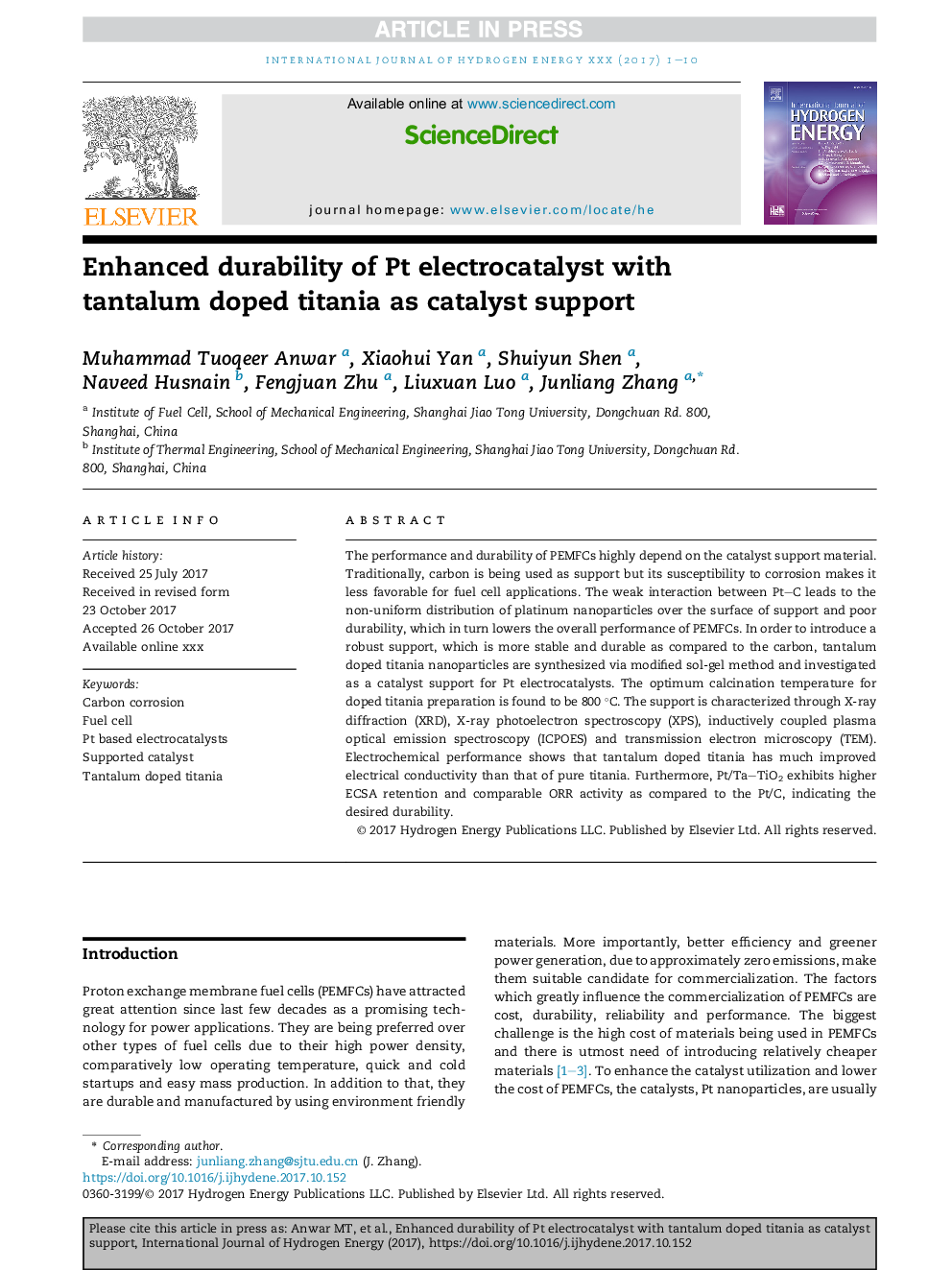| Article ID | Journal | Published Year | Pages | File Type |
|---|---|---|---|---|
| 7708756 | International Journal of Hydrogen Energy | 2017 | 10 Pages |
Abstract
The performance and durability of PEMFCs highly depend on the catalyst support material. Traditionally, carbon is being used as support but its susceptibility to corrosion makes it less favorable for fuel cell applications. The weak interaction between PtC leads to the non-uniform distribution of platinum nanoparticles over the surface of support and poor durability, which in turn lowers the overall performance of PEMFCs. In order to introduce a robust support, which is more stable and durable as compared to the carbon, tantalum doped titania nanoparticles are synthesized via modified sol-gel method and investigated as a catalyst support for Pt electrocatalysts. The optimum calcination temperature for doped titania preparation is found to be 800 °C. The support is characterized through X-ray diffraction (XRD), X-ray photoelectron spectroscopy (XPS), inductively coupled plasma optical emission spectroscopy (ICPOES) and transmission electron microscopy (TEM). Electrochemical performance shows that tantalum doped titania has much improved electrical conductivity than that of pure titania. Furthermore, Pt/TaTiO2 exhibits higher ECSA retention and comparable ORR activity as compared to the Pt/C, indicating the desired durability.
Related Topics
Physical Sciences and Engineering
Chemistry
Electrochemistry
Authors
Muhammad Tuoqeer Anwar, Xiaohui Yan, Shuiyun Shen, Naveed Husnain, Fengjuan Zhu, Liuxuan Luo, Junliang Zhang,
